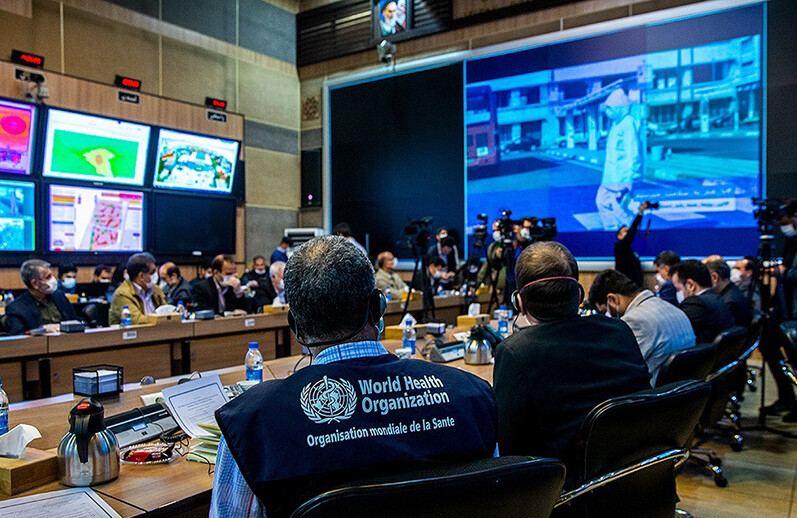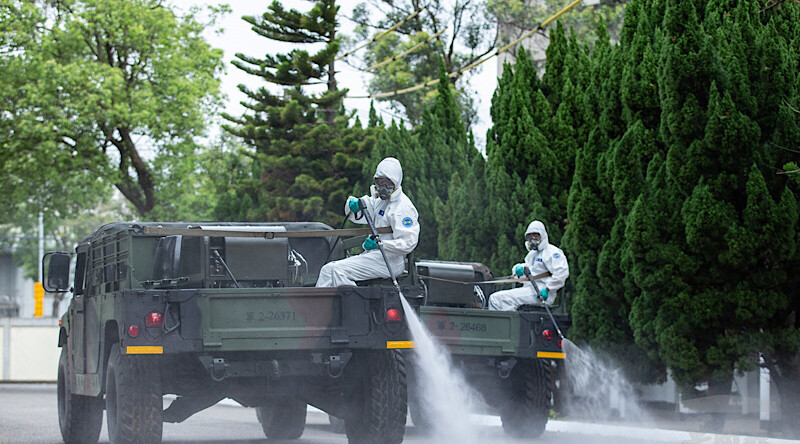First of all, we hope that this note finds you and your loved ones safe and healthy. It is a scary and strange time and we at Carnegie Council are following the advice of experts and staying indoors.
Even though our physical office in New York City is closed, our work has continued without pause. We are adapting to our new reality and our recent podcasts and blog posts reflect this. The effects of the COVID-19 pandemic have deep implications for the future of international relations; how nations are using artificial intelligence, surveillance, and big data; and the ways that private citizens, corporations, and states communicate and receive information online, as disinformation and pseudoscience become even more dangerous.
We are also re-discovering public lectures, articles, and blog posts from our archives that are newly relevant. Several years ago, the focus might have been on Ebola, SARS, or HIV-AIDS, but many of the ethical and political issues remain the same.
We hope you find these resources informative and that they inspire you to think about the pandemic in a different way.
New Podcasts (with Full Transcripts)Taiwan's Digital Response to COVID-19, with Audrey TangDespite being close to the initial epicenter of the virus, Taiwan was able to contain its COVID-19 outbreak earlier in 2020. Audrey Tang, Taiwan's digital minister, explains how her office helped in this effort by fighting disinformation with some innovative ideas. What can countries like the U.S. or Italy learn from Taiwan in the battle against this pandemic?
Responsible AI & the COVID-19 Pandemic, with Rumman ChowdhuryHow can we use artificial intelligence ethically during a crisis? How do we balance privacy with security and public health? Rumman Chowdhury, global lead for responsible AI at Accenture, discusses surveillance, supply chains, pseudoscience, Netflix, and much more as the world adjusts to social distancing.
The Coronavirus Pandemic & International Relations, with Nikolas GvosdevWith the COVID-19 pandemic disrupting all aspects of daily life around the world, what will be the effect on international relations? Will it increase cooperation among nations, or will it lead to more conflict and competition? Senior Fellow Nikolas Gvosdev and host Alex Woodson discuss these scenarios and also touch on how the virus has affected the Democratic primary.
New Articles, Op-eds, and Blog PostsFacing a Pandemic in the Dark Over 1 million Rohingya refugees living in crowded, unsanitary conditions in Cox's Bazar, Bangladesh could soon be facing their own COVID-19 outbreak. Making their situation even more desperate is an Internet blockade, meaning they are quite literally "in the dark," writes Rohingya activist and educator Razia Sultana. How can international organizations help?
Borders in the Time of COVID-19In this online exclusive for the Ethics & International Affairs website, Ayelet Shachar discusses borders in the time of COVID-19. The current crisis reveals that governments seeking to restrict mobility rely only partly (and increasingly rarely) on brick and mortar. She argues that a new paradigm has been created: the shifting border.
The Coronavirus and Trust in the Process of International Cooperation: A System Under PressureIn another online exclusive for the Ethics & International Affairs website, Sara E. Davies reminds us of the need for "more communication, more information, and more efforts to build trust between states, the WHO, and the citizenry."
C2G In the Age of COVID-19Convincing busy policymakers to respond to the governance needs of events that lie in the future can be a difficult task at the best of times, even more so when living through an active crisis, writes C2G Executive Director Janos Pasztor. At the same time, COVID-19 has certainly underlined the value of anticipating future problems and preparing frameworks to tackle them.
Does COVID-19 Change International Relations?How does a global pandemic change the nature of international affairs? Is it likely to foster international cooperation, or will it promote disintegrative tendencies within the global system? Senior Fellow Nikolas Gvosdev shares his thoughts.
From our ArchivesArtificial Intelligence in Global Health Now with Open AccessAI is reaching into every aspect of global health. This essay by Sara E. Davies examines one example of AI's potential contributions and limitations in this area: the prediction, treatment, and containment of a global influenza outbreak. It was published in Ethics & International Affairs, Volume 33, Issue 2, Summer 2019, and is availble with open access for a limited time, courtesy of Cambridge University Press.
The Next Pandemic: On the Front Lines Against Humankind's Gravest DangersIn over 20 years at the CDC, Dr. Ali Khan battled Ebola, SARS, and other deadly diseases. But, as he reveals in this fascinating talk, what really worries him is the effect that political and social factors can have on fighting these outbreaks. In this public talk in 2016, we asked what can governments—and individuals—do to be better prepared?
Ebola and Other Viral Outbreaks: Providing Health Care to the Global Poor in Times of CrisisWhy were initial responses to the Ebola outbreak so disastrously inadequate? How can dysfunctional health systems—at all levels—be improved, so that this doesn't happen again? Dr. Klitzman of Columbia University and Dr. Karunakara, former international president of MSF, discussed these issues and more in a 2015 visit to Carnegie Council.
The Ethics Police?: The Struggle to Make Human Research SafeWhen it comes to medical research using human beings, who decides what's right? How do the U.S. institutional review boards work? What does "informed consent" mean when you need a law degree to understand the consent forms? How are clinical trails conducted overseas? Dr. Klitzman explores these troubling and complex ethical concerns in this talk from 2015.
Ebola, Liberia, and the "Cult of Bankable Projects"Instead of addressing core issues of state failure, development aid continues pushing narrowly focused agendas that have little meaning in places where institutions and infrastructure are broken, writes Shefa Siegel in this 2015 essay for the Ethics & International Affairs website.
Bio-Security, Nonstate Actors, and the Need for Global Cooperation"Biological security knows no boundaries," writes Bruce Jones, non-resident fellow and former director at New York University's Center on International Cooperation (CIC). The full text of this essay is available and was published in Ethics & International Affairs, Volume 20, Summer 2006.

